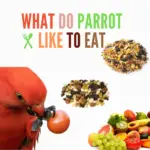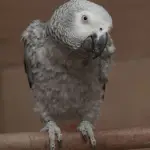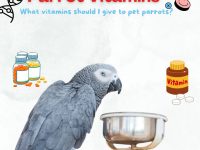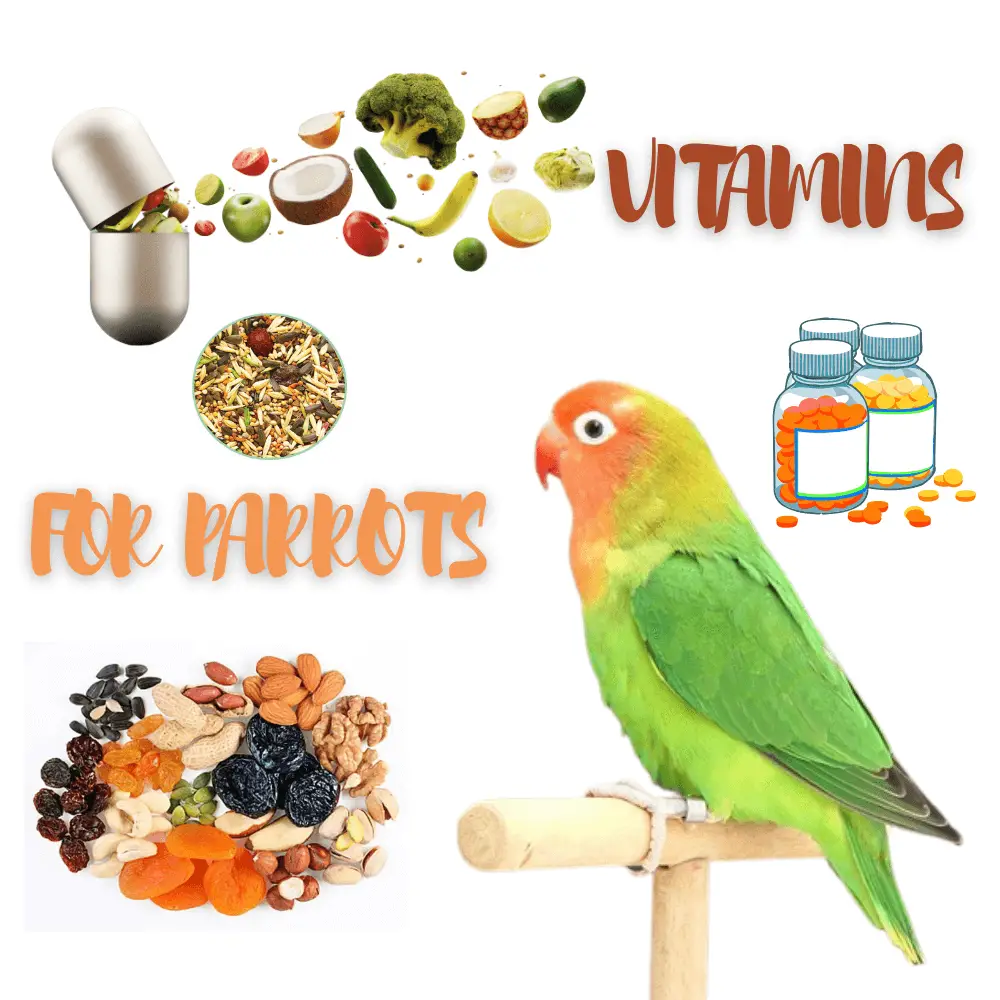
Parrot food pellets: Throughout his life, the bird will encounter periods of intense metabolic stress where the needs of his body will be increased: the breeding season, low temperatures (especially for birds in outdoor aviaries), and molts.
Supplementation of the ration can, therefore, be used by the practitioner to prevent these periods or to correct disorders caused by a deficient ration (therapeutic aim).
During these periods, the bird’s diet may not cover all its needs and the owner may need to supplement the food with vitamins and minerals. Many dietary supplements exist in commerce that the owner can use depending on the ratio of the bird:
- If the bird is fed a majority of seeds: regularly supplement the diet by making cures a week every month at the maximum.
- If the ration consists mainly of pellets: do not supplement the bird until during metabolic stress, especially in early spring and autumn (molts).
It is important not to abuse dietary supplements because the excess of certain vitamins or minerals can cause disorders at least as serious as the deficiencies.
A subtropical species belonging to the Psittacidae, the parrot is a bird renowned for its speech. Domesticated for hundreds of years, it is important to bring suitable food in captivity.
Do you know what a parrot eats?
What food and food to give to a parrot! Tips for a good diet for your parrot
Nutritional deficiency is one of the biggest causes of mortality in captive parrots. Indeed, malnutrition leads in the medium and long term to chronic pecking (mutilation of plumage), persistent infections of the respiratory system, and dysfunction of immune defenses. In addition, the food imbalance will also be visible in terms of the color of the feathers, the vitality of your pet (apathy), and the character (aggressiveness, folds, hyper-vocalization …).
Feeding the parrot
The numerous types of research in avian nutrition have guaranteed the development of a balanced diet adapted to your bird. Having different needs from those of parrots living in their natural environment, it is important to adjust adequate nutrition to the specific energy needs of your so-called pet bird.
Indeed, having a great energy expenditure in the search for food, the wild parrot preferentially selects seeds rich in fat which is also available only at certain times of the year. This feeding practice is also practiced by the pet parrot and can lead to a risk of obesity as well as triggering liver and cardiovascular diseases.
In order to ensure a suitable diet and good health for your bird, the ideal solution is to provide extruded. The extruded food is available in the form of granules containing a perfect contribution to the nutritional needs of birds in captivity thus avoiding any risk of deficiency (no sorting possible).
Feeding the parrot with balanced food
The diet that a parrot eats must include balanced intakes of proteins, amino acids, minerals, and vitamins. In addition, it is important to diversify nutritional sources in order to stimulate your large bird and thus avoid eating disorders such as anorexia. Thus, it is advisable to cut small quantities of different types of food (granules, seeds, dried and fresh fruits …). Certainly, in its natural environment, the parrot travels vast spaces allowing it to access a diet of great diversity.
Thus, a complete and enriching diet is essential to the physical and psychological well-being of your bird. In addition, balanced nutrition is adapted to each species and meets the needs of the organism of individuals at all stages of life (growing, adult, and reproductive).
Precautions! The digestive system of Psitaccus is different from that of humans, so certain foods are forbidden at the risk of causing serious or even fatal digestive disorders.
Recommended food for parrot
How do I choose my parrot’s food? Quality of course! It is imperative to select a bird feeder with a high nutritional value of so-called premium quality. To do this, it is advisable to refer to trusted brands according to the size of your bird as well as the family to which it belongs.
The most popular varieties of food for properly feeding the parrot are available:
In the form of granules: Extruded products are usually made from crushed seeds cooked at high temperatures. Pellets are an essential complement to the diet of your bird. It is recommended that pellets constitute between ten and thirty percent of daily nutrition.
The recommended seed/extruded ratio is sixty percent. However, the intake of this food source must be adjusted according to your pet’s needs and health. In addition, it is advisable to change the type of pellets on a regular basis to avoid food fatigue.
In the form of seed mixtures: Usually, the balanced seed mixture is composed of millet (yellow, white, red, and Japanese), oats, canary seed, sunflower, wheat, flax, sesame Schenevus or cardy, sunflower, corn, rapeseed, nigella, hemp or peanut. However, be sure to be vigilant about the diversity and quality of the seeds.
Indeed, the mixture should not be too rich in millet and low in so-called health seeds (canary seed, oats, flax, or sesame) to avoid the risk of obesity, foie gras, and deficiency. Commonly, the mixture consists of seventy percent grain and thirty percent oilseeds. Seeds represent between fifteen and twenty percent of the diet depending on the species.
The different types of parrot food
Parrots need a varied diet to maintain good health. There are foods specially designed for parrots, for which it is not useful to add vitamin supplements. You can give your parrot seed mixtures, rich in protein and lipids. You can offer sunflower, safflower, millet, pumpkin seeds, corn, canary seed, buckwheat, wheat, oats, or sesame. Meticulous birds love to shell grains.
You can soak them for twenty-four hours to make them more digestible, increase their nutrient content and reduce fat. You can add nuts and almonds for calcium or pistachios for vitamin A and iron.
For these preparations, it is always necessary to leave fresh fruits and vegetables available. Dried fruits are very sweet, they must remain a delicacy! In another genus, mealworms are also prized by parrots.
What is the ideal diet for my parrot?
Your feathered companion needs fresh food every day. Generally speaking, it is best to replace food quickly. Supplementing your parrot’s diet with fresh fruits and vegetables is important, making sure you have them washed thoroughly. Your pet is gourmet, he loves diverse food, so vary the pleasures by alternating the types of seeds, nuts, or legumes. You will prefer foods rich in vitamins A and D3 and calcium.
In summary, your parrot can get the nutrients and vitamins it needs from several types of food. While being vigilant about those to keep out of reach, you can vary his diet while making him happy. If the various nuts, seeds, and other mealworms are generally delicious for your companion, it’s up to you to find his catch cute.
Parrot Supplements
Feeding is an essential part of a bird’s existence, and it should not be taken for granted. In order for your pet to stay healthy, it must be fed adequately. However, this is not always enough. The bird may need more food from time to time.
Food supplements promote parrot welfare
Feeding your birds is essential to their health. Food supplements can contribute to their maintenance. There are nutrients that will provide them with the important minerals, trace elements, and nutrients they need. Pâtés can also be fortified to make them more nutritious.
A healthy substance without a negative effect is a nutrient. They contain one or more distinct components for a specific purpose: they ensure that the bird enjoys all its benefits when fed, in order to compensate for a deficit, prevent a possible lack, or ensure the comfort of the animal.
Vitamins are used to treat a range of ailments, from lack of energy in an animal to anxiety. Vitamins can also be given in the form of food additives or supplements. Digestive problems can be treated with dietary supplements that improve the intestinal flora…
Proteins: to boost the energy of the parrot
Seeds are the basis of the diet of birds. They provide protein for the bone and muscle development of birds. They allow the animal to remain active throughout the change of seasons, breeding seasons, and molting periods by providing essential amino acids. Amino acids are present in proteins.
Unfortunately, many essential organic compounds are not present in all plant proteins. That’s why dietary supplements can be helpful in giving your bird these vital amino acids for maintaining good health. The bird’s immune system is weakened if it does not have these organic compounds, and bones can become brittle and even cause paralysis, according to some experts.
Vitamins: to keep the bird in top shape
Your bird’s regular diet may not be enough to cover its nutritional needs, especially if it is not eating well. Vitamin deficiencies are another problem that could cause your pet bird to suffer. In other words, your bird is not getting enough vitamins through its usual diet. In the most severe circumstances, these deficiencies can be fatal. Vitamin A and D deficiencies are typical and lead to calcium deficiencies.
Vitamin B is the most common vitamin in humans. Vitamins C and D are not made by birds. They must therefore be provided as a supplement to the diet. Consumption of these vitamins will provide a tonic that will keep the bird well-fed and in good shape with smooth and shiny plumage.
Which food supplement for birds choose?
Today, there are a large number of dietary supplements that can perfectly be given to birds. Among them, you can choose between:
AD3E + Folic acid: to help the bird be healthy
AD3E + Folic Acid is a dietary supplement for canaries and other exotic birds that must be mixed with their normal seed mixture. It brings energy substances, including minerals and vitamins, to the bird, thus ensuring its good health and fitness. In excellent condition, the bird will be able to sing more often and better on a daily basis.
One teaspoon per day per bird is the recommended dosage. You can give it to the beak or combine it with food. We recommend using the product within 3 months of opening for optimal results.
The Fortifying Pâtée with eggs: to increase your well-being
The fortifying patée of the Nestling contains all the necessary components, including animal and vegetable proteins, vitamins, minerals, and trace elements, for the reproduction, growth, and molting of your bird.
- During the breeding period, feed 2-3 times a day, except on the day of laying.
- During the molting period, it should be given every day.
In addition, some parrots refuse to touch their bowl or their drinking water if they see their owner add products. In case of supplementation, it is, therefore, advisable to prepare the bowls out of sight of the animal
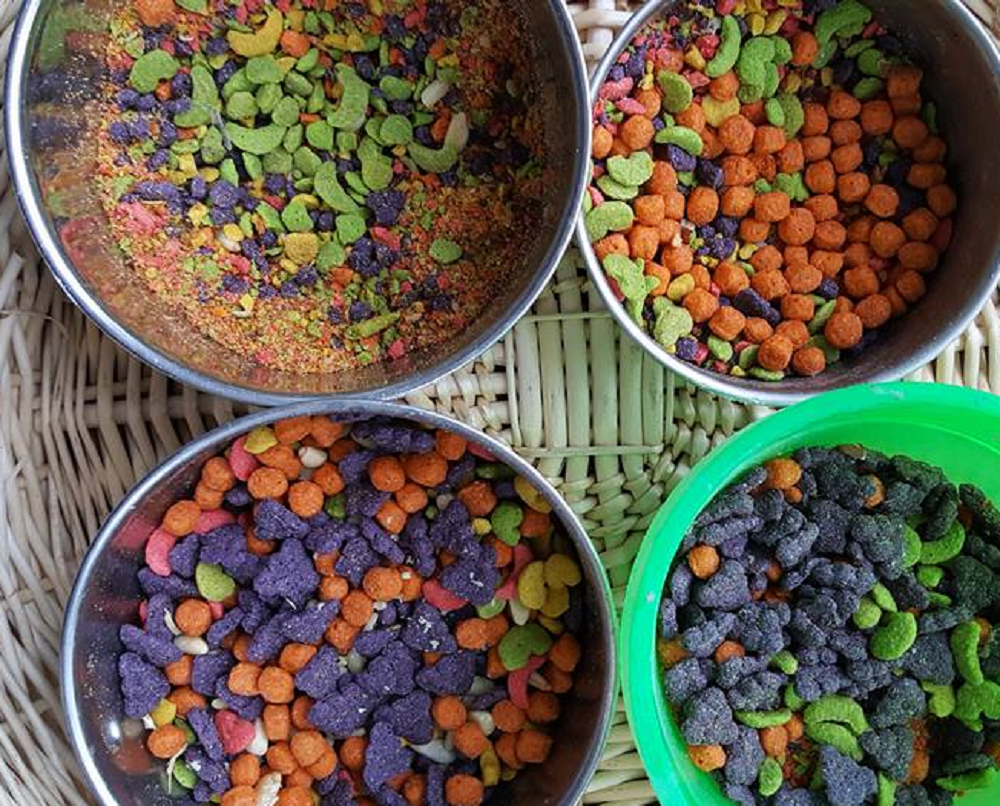 What vitamins do birds need
What vitamins do birds need
what vitamins do birds need: The wheat germ is located under five epidermal layers of the wheat kernel and is the most interesting part of it.
Nature has endowed the wheat germ with a very large amount of vital factors:
- Carbohydrates
- Oils
- Proteins
- Trace elements
- Hormones
- Enzymes
It also contains a whole series of vitamins: A, B1, B2, B3 to B6, C, D, E, F, etc.
The force contained in the germ is immense. Wheat germ can be found in health food stores either in flakes, oil or capsules.
All shapes are excellent for parrots.

Spirulina
Spirulina is Mexican algae rich in vegetable proteins and easily assimilated by the body.
It also contains many vitamins such: as A, B1, B2, B3, B5, B6, B7, B12, B17
and vitamin E.
It is a food of choice for the diversity of vitamins of the B group and in addition, contains a lot of vitamin A
SOURCE: M&M Cage Company, LLC
Related Articles:

